Local MP helps BGS launch a ‘living laboratory’
BGS is implementing a low-carbon heating system to help meet its net zero targets and provide data to the public.
05/03/2024 By BGS Press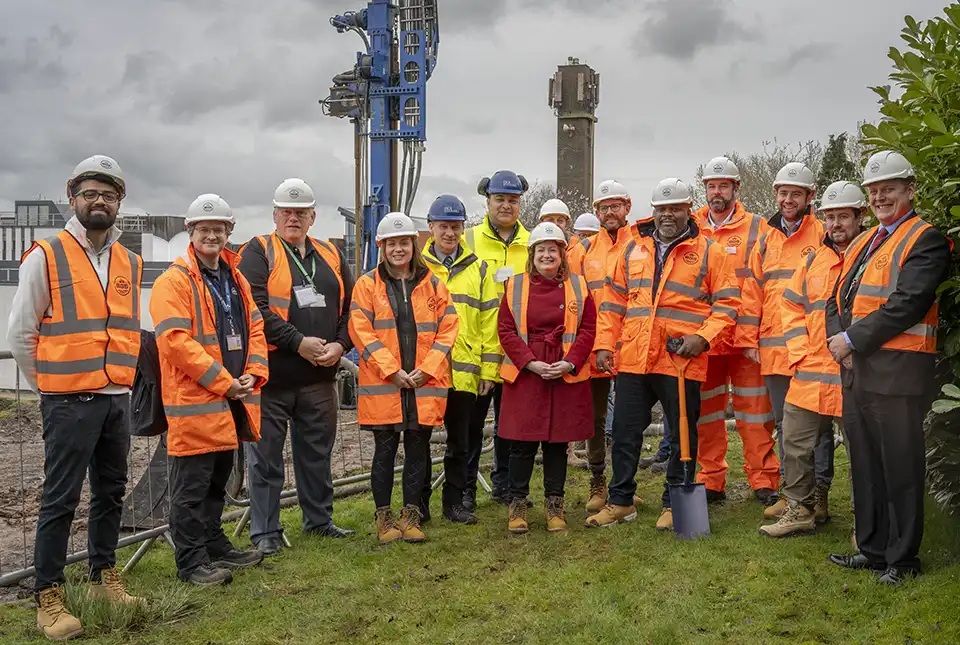
BGS has broken ground on its geothermal heat pump project at its headquarters in Keyworth, Nottinghamshire, with the help of Ruth Edwards, MP for Rushcliffe. The ground-source heat pump and living lab project is costing £1.7 million and is majority funded by the Natural Environmental Research Council (NERC) with a further contribution from the Government’s Public Sector Decarbonisation Scheme. The scheme is run by the Department for Energy Security and Net Zero and delivered by Salix Finance.
The renewable energy system will be the largest system of its kind in Rushcliffe, consisting of an array of 28 boreholes drilled to a depth of 225 m. It will save approximately 30 tonnes of carbon dioxide (CO2e) per year and reduce the organisation’s heating bill.
Forming part of BGS’s Keyworth campus decarbonisation plans, the proposed system will involve the removal of greenhouse gas-emitting gas boilers and will heat two buildings on the Keyworth site, where more than 400 members of staff work, including tenants and non-BGS staff.
The heating system will also benefit from advanced monitoring, which will assess the running costs and efficiency of the heat pumps and provide a case study for other organisations, such as schools and hospitals, that are thinking of switching from fossil fuel boilers to clean heat pumps.
The project will constitute a ‘living laboratory’, with state-of-the-art sensors deployed in the heat extraction boreholes and buildings. The technology will provide data in real time to help increase the public’s understanding of ground-source heat pumps and how they can be an effective solution for heating both new and existing buildings in the UK.
As part of this project, BGS will also be taking rock samples for further analysis to help get a better understanding of the flow of heat and water underground. The type of geology on site at Keyworth means that this information is transferable to a large part of the UK; the information generated will be of help to other, similar projects.
The installation of the ground-source heat pump is part of a wider project to help achieve UK Research and Innovation (UKRI)’s aim of reaching net zero by 2040. This also included the installation of 1000 solar panels above BGS’s car parking area in 2022.
To mark the installation of this technology and the ground-source heat pump, BGS invited local MP Ruth Edwards to the site where she met with senior staff, scientists and members of the estates team at BGS to learn more about the project, as well as to see the borehole drilling taking place.
I was really honoured to be asked to break ground on the new geothermal heat pump at the British Geological Survey in Keyworth. This is a hugely exciting opportunity to help decarbonise the public sector estate. I’m thrilled that we are trialling the technology here in Rushcliffe and that the data generated by the trial will be used to inform other projects around the country. Many congratulations to all involved!
Ruth Edwards, Member of Parliament for Rushcliffe.
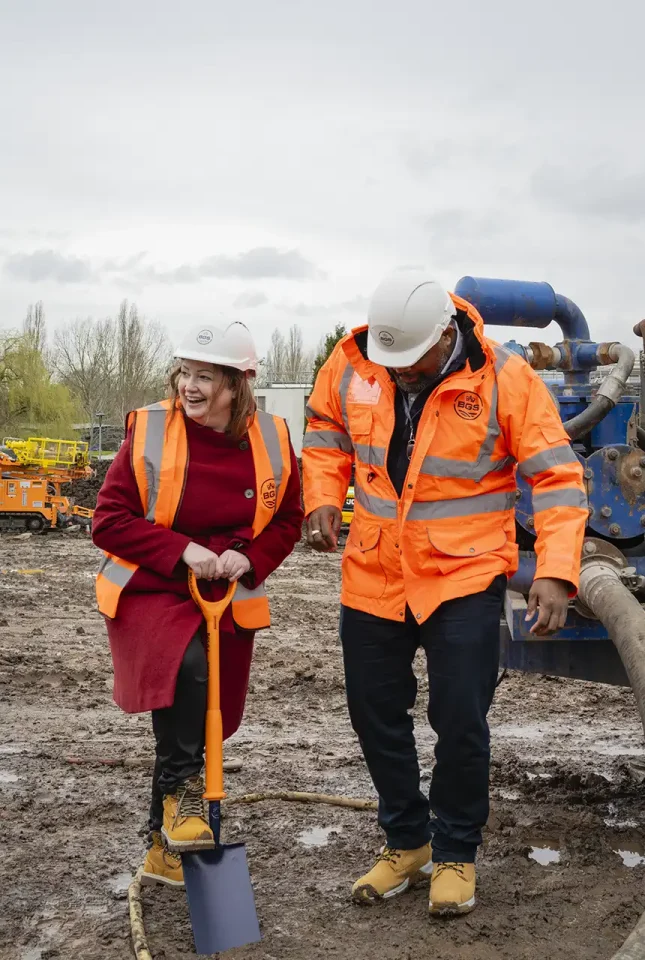
Ruth Edwards breaking ground. BGS © UKRI.
This inspiring project to decarbonise heat at the BGS Keyworth campus will reduce our reliance on fossil fuels. This is the first geothermal heat pump system to be installed on the UKRI estate and will support our journey to net zero in 2040. What makes this project extra special is the ‘living lab’ feature, which will support data collection and knowledge sharing that could inform the heat pump sector as a whole.
Mike Potter, senior environment manager at NERC.
Geothermal energy is heat that naturally occurs under the ground and is available 24/7 across the UK. This project will demonstrate the deployment of ground-source heat pump technology to decarbonise existing buildings across the public sector estate.
David Boon, senior engineering and geothermal geologist at BGS.
This exciting project gives us the opportunity to blend our observation of the subsurface with leading low-carbon heating. The disruption to BGS staff will be kept to a minimum, with short closures of a couple of buildings to allow for the installation of heat emitters. The drilling and heat pump installation is due to last around three months. The borehole installation should not impact on Keyworth site operations due to the careful planning and specification involved in the project.
Daniel Crow, head of BGS Estates and Facilities.
Cenergist are proud to be supporting the British Geological Survey in their plans to achieve net zero by 2040. Our solution for this site will provide modernised futureproof low carbon heating and hot water systems to these two buildings, significantly reducing carbon emissions.
Steve Wilkinson, head of commercial projects at Cenergist.
We are delighted to work with the British Geological Survey on this fascinating project. The state-of-the-art technology and the innovation being deployed is hugely exciting and the impact this will have on reducing carbon emissions is inspiring. We cannot wait to follow the project progress and see how a ‘living lab’ with all its detailed data collection will work and benefit this site and all the people who use it.
Ian Rodger, director of programmes at Salix.
There are a number of Government grant schemes to help the public and organisations install ground-source heat pumps. The Government’s aim is to see 600 000 heat pumps installed in the UK every year by 2028, as part of the UK’s target to reach net zero by 2050.
The Natural Environment Research Council (NERC) is the driving force of investment in environmental science in the UK. We advance the frontier of environmental science by commissioning new research, infrastructure and training that delivers valuable scientific breakthroughs. NERC invests public money in world-leading science, designed to help us sustain and benefit from our natural resources, predict and respond to natural hazards and understand environmental change.
Salix’s role is to support the UK government in driving the transition to a low carbon future and meet challenging net zero targets. We deliver and administer grant and loan funding on behalf of the Department for Energy Security and Net Zero, the Department for Education and the Scottish and Welsh governments. This is delivered across the public sector as well as housing.
The schemes we deliver provide funding for energy efficiency and heat decarbonisation projects for public sector buildings as well as the housing sector. Our schemes are dedicated to reducing carbon emissions and supporting the government’s ambitious net zero targets. These programmes include the Public Sector Decarbonisation Scheme, the Social Housing Decarbonisation Fund, Home Upgrade Grant, the Low Carbon Skills Fund and Scotland’s Public Sector Heat Decarbonisation Fund,
We also play an important role in increasing awareness of energy efficiency and heat decarbonisation across the public sector throughout the UK. Our teams work closely with the public sector organisations throughout their decarbonisation journey, from the moment a grant is allocated to the moment the scheme is fully operational.
In January 2023 our role expanded and we were appointed delivery agent for Wave 2 of the Social Housing Decarbonisation Fund and the Home Upgrade Grant schemes. These schemes provide funding for energy saving measures for social housing rented homes as well as owner occupied homes.
Cenergist supports local authorities, social housing providers, commercial clients and water companies to achieve their Net Zero and decarbonisation goals. As well as the UK, Cenergist also operates in Holland, Spain and India.
Relative topics
Related news
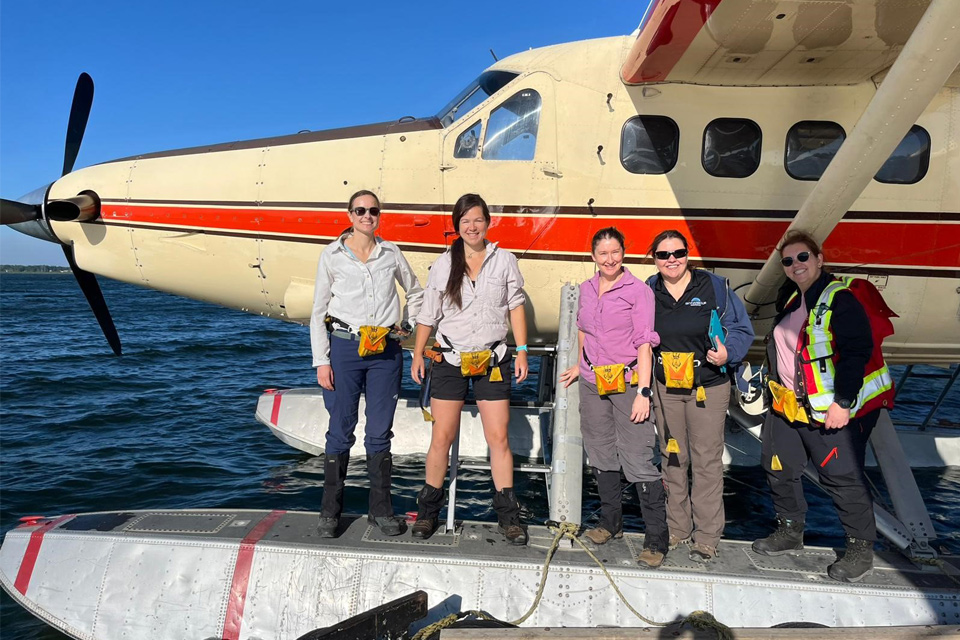
Funding awarded to UK/Canadian critical mineral research projects
08/07/2025
BGS is part of a groundbreaking science partnership aiming to improve critical minerals mining and supply chains.

Goldilocks zones: ‘geological super regions’ set to drive annual £40 billion investment in jobs and economic growth
10/06/2025
Eight UK regions identified as ‘just right’ in terms of geological conditions to drive the country’s net zero energy ambitions.

New interactive map viewer reveals growing capacity and rare earth element content of UK wind farms
16/05/2025
BGS’s new tool highlights the development of wind energy installations over time, along with their magnet and rare earth content.

Latest mineral production statistics for 2019 to 2023 released
28/04/2025
More than 70 mineral commodities have been captured in the newly published volume of World Mineral Production.
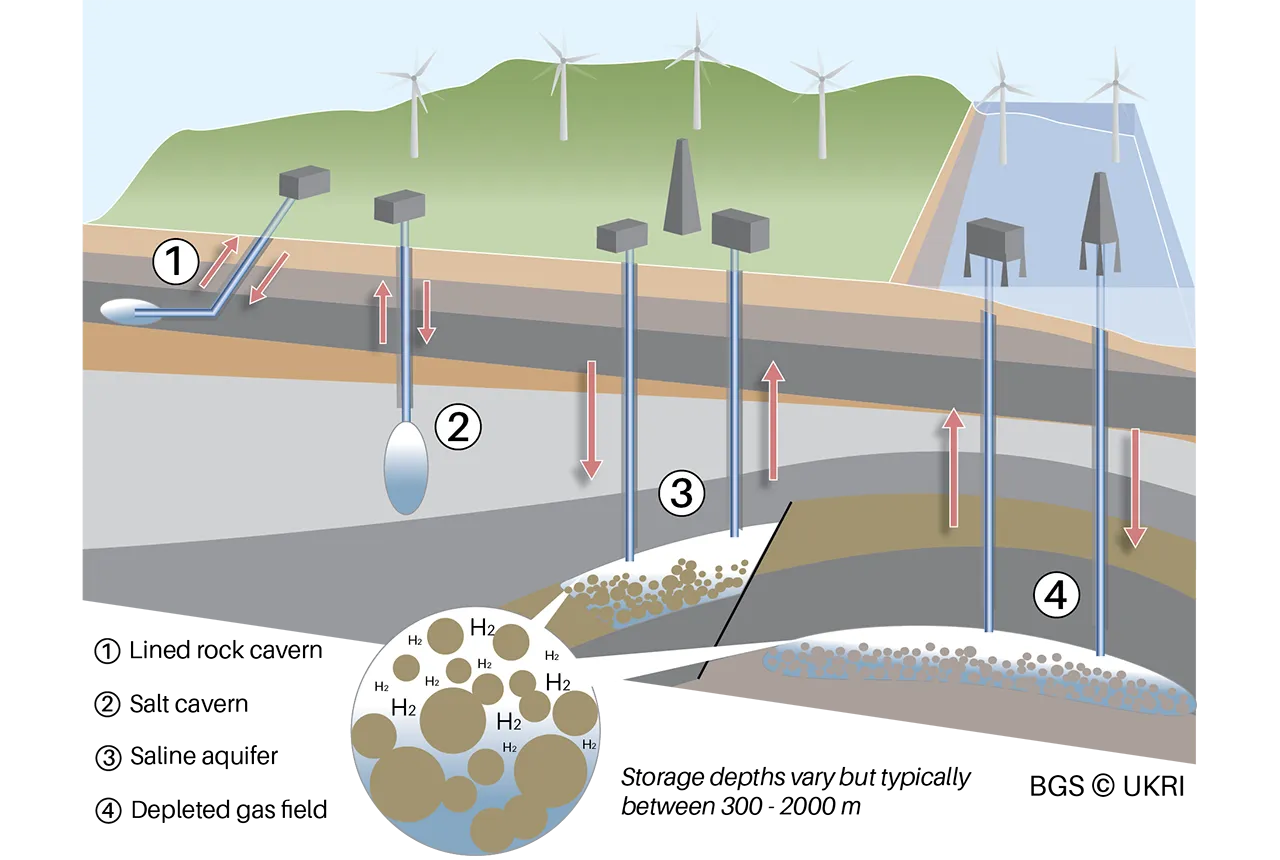
Making the case for underground hydrogen storage in the UK
03/04/2025
A new BGS science briefing note focuses on the potential of hydrogen storage to support the UK energy transition.
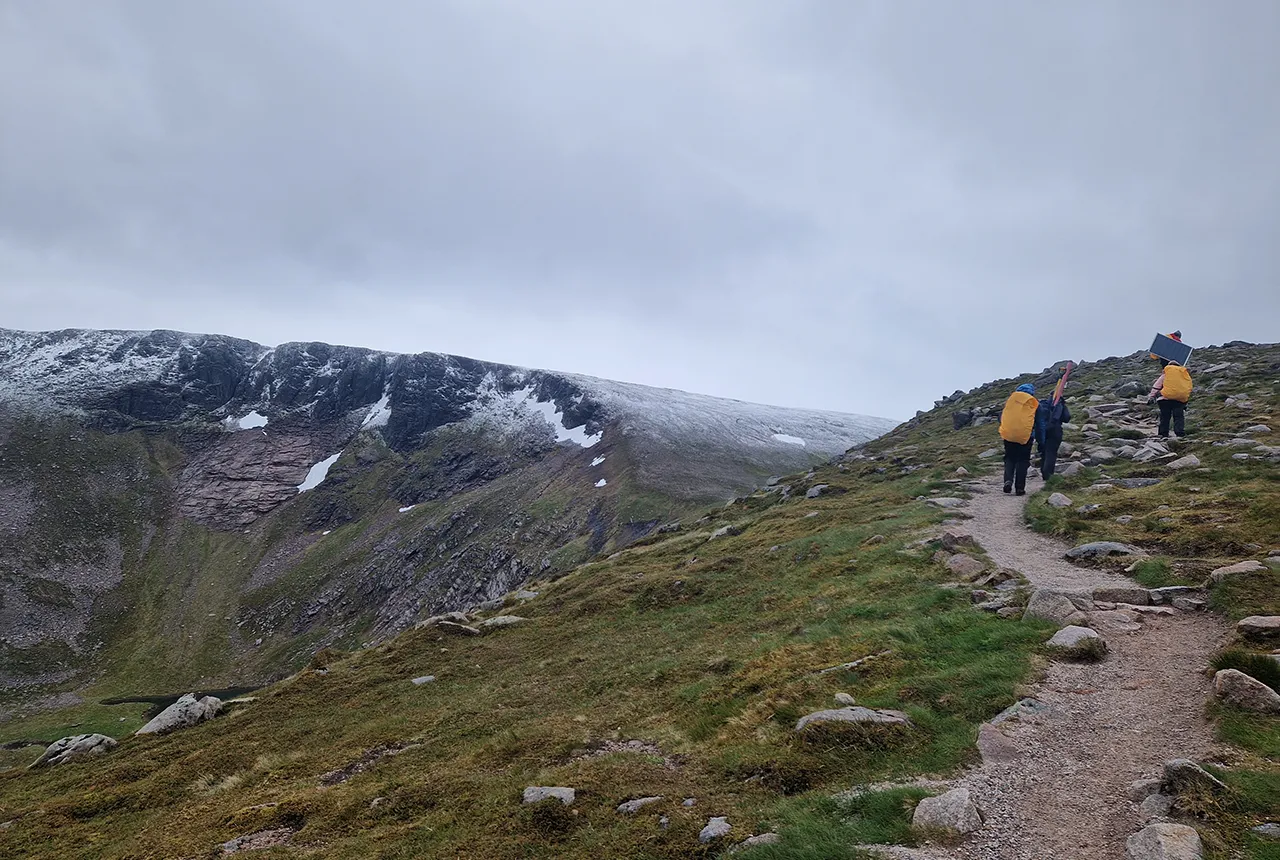
Exploring Scotland’s hidden energy potential with geology and geophysics: fieldwork in the Cairngorms
31/03/2025
BUFI student Innes Campbell discusses his research on Scotland’s radiothermal granites and how a fieldtrip with BGS helped further explore the subject.

Future projections for mineral demand highlight vulnerabilities in UK supply chain
13/03/2025
New Government-commissioned studies reveal that the UK may require as much as 40 per cent of the global lithium supply to meet anticipated demand by 2030.

Could underground disposal of carbon dioxide help to reduce India’s emissions?
28/01/2025
BGS geologists have partnered with research institutes in India to explore the potential for carbon capture and storage, with an emphasis on storage.
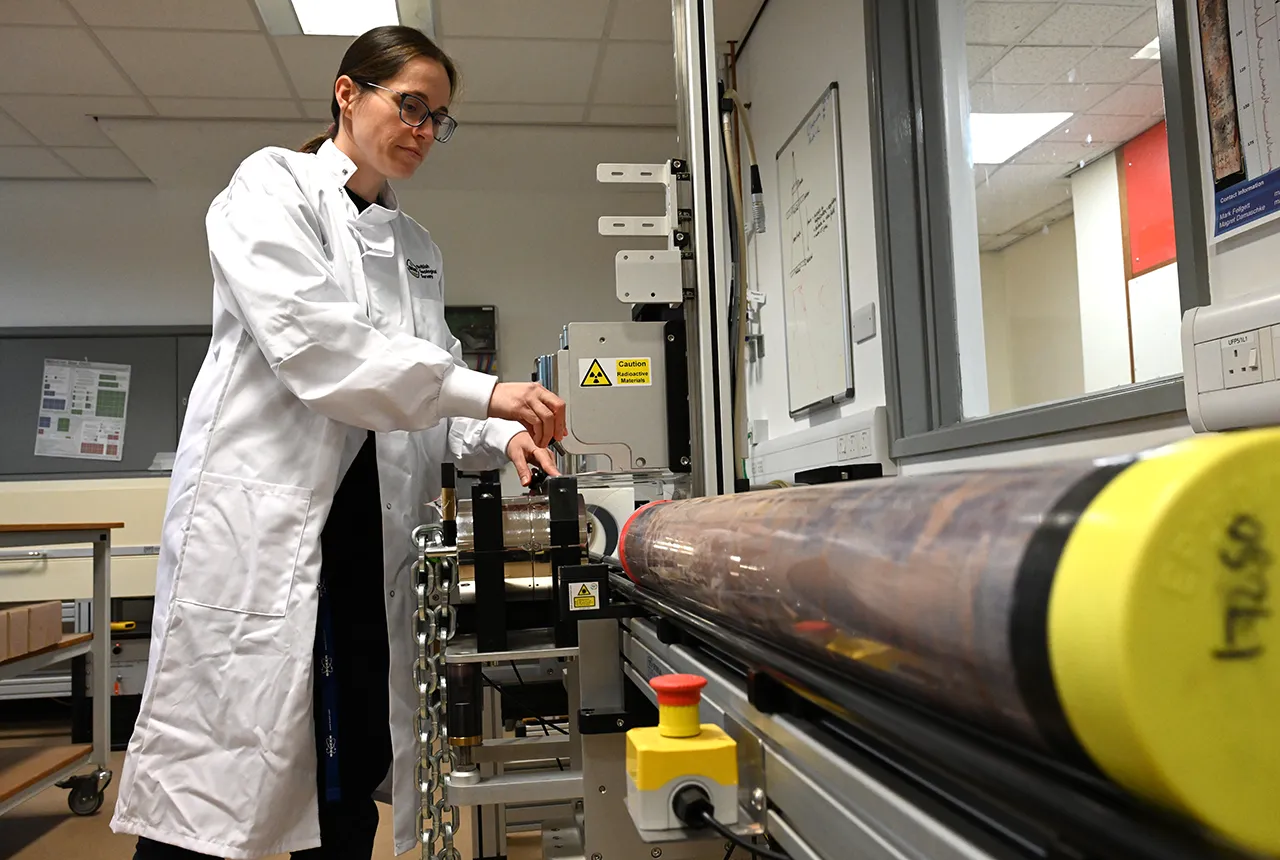
Prehistoric power: 250-million-year-old rocks could contain secrets to net zero future
05/12/2024
BGS has completed a comprehensive scan of Mercia Mudstone rocks that could hold geological secrets of the UK’s past and provide a boost for net zero.
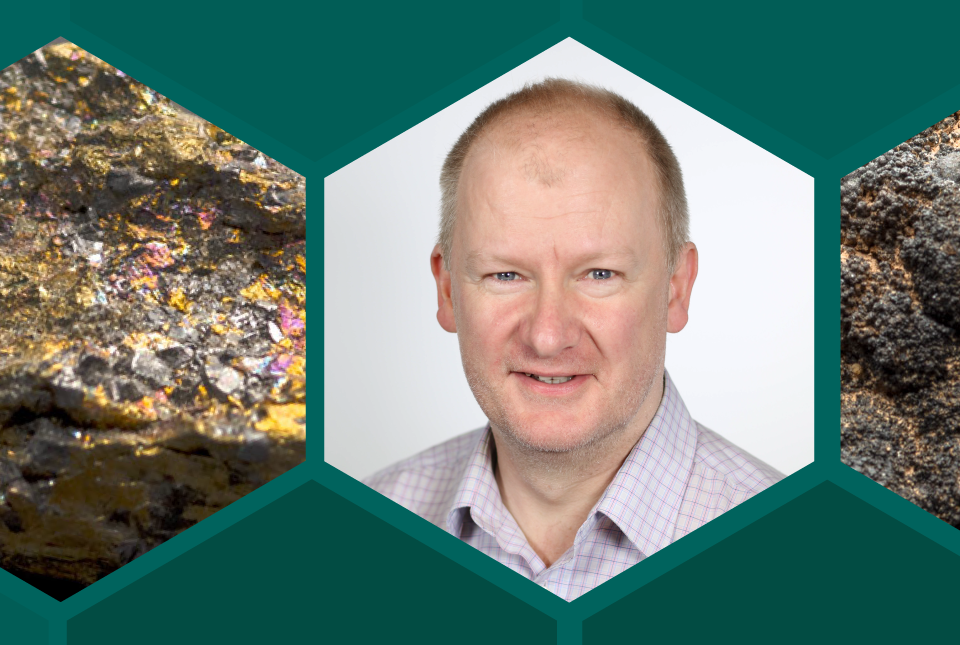
The challenge of assessing the UK economy’s dependence on mineral supply
28/11/2024
Critical, essential, or just plain important? Dr Gavin Mudd, director of the Critical Minerals Intelligence Centre, discusses the findings and new methodology featured in the 2024 UK Criticality Assessment.

UK 2024 Criticality Assessment published
28/11/2024
The latest UK Criticality Assessment, produced by the UK Critical Minerals Intelligence Centre, shows that growing diversification brings an increasing vulnerability in terms of disruption to supply.

Criticality Assessment 2024 launch webinar
Event on 28/11/2024
A special live webinar with the team from the Critical Minerals Intelligence Centre to accompany the launch the latest UK Criticality Assessment. A recording is now available to watch online




